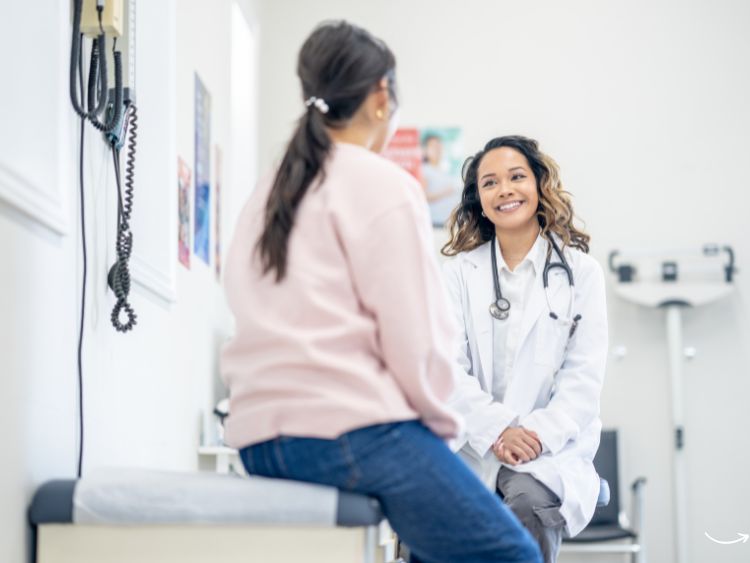Women’s health centers play a crucial role in ensuring women have access to comprehensive healthcare tailored to their unique needs. Whether it’s routine checkups, specialized care, or mental health support, these centers provide a one-stop solution for women at every stage of life. In this article, we’ll explore what makes a women’s health center essential, the services they offer, and how they’re transforming the landscape of healthcare for women.
What is a Women’s Health Center?
A women’s health center is a healthcare facility dedicated to addressing women’s physical, emotional, and reproductive health needs. Unlike general clinics, these centers focus exclusively on services that cater to women, ensuring they receive specialized care in a comfortable and supportive environment.
Key Features of Women’s Health Centers:
- Personalized Care: Tailored treatment plans based on individual health requirements.
- Holistic Approach: Combining physical, mental, and emotional well-being.
- Expert Staff: Teams of gynecologists, mental health professionals, and general practitioners specialized in women’s health.
Services Offered at a Women’s Health Center
Women’s health centers offer a wide range of services, from preventive care to advanced treatments. Here’s a breakdown of the most common offerings:
1. Reproductive Health Services
- Gynecological exams, including Pap smears and pelvic exams.
- Birth control counseling and options.
- Fertility assessments and treatments.
- Prenatal and postnatal care.
2. Preventive Care
- Mammograms and breast health screenings.
- Bone density tests to detect osteoporosis.
- HPV vaccinations.
- Regular health checkups to monitor chronic conditions like diabetes or hypertension.
3. Mental Health Support
- Counseling for stress, anxiety, and depression.
- Support groups for postpartum depression or menopause.
- Therapy for trauma or abuse survivors.
4. Chronic Disease Management
- Treatment plans for conditions like PCOS, endometriosis, and fibroids.
- Hormone therapy for menopause-related issues.
- Diabetes and heart disease management tailored to women’s physiology.
5. Wellness and Lifestyle Programs
- Nutrition counseling tailored to women’s needs.
- Fitness programs designed for pregnancy, postpartum, or menopause.
- Stress management workshops.
Why Should You Choose a Women’s Health Center?
Let’s face it—healthcare can feel impersonal at times. Women’s health centers eliminate that by creating a safe and welcoming space where women feel heard and valued. Here are some standout benefits:
- Specialized Expertise: You’re not just a number; you’re receiving care from professionals who truly understand women’s health.
- Community Support: Many centers host workshops and events, fostering a sense of community among patients.
- Comprehensive Care: From routine screenings to mental health support, everything is under one roof.
What to Look for in a Women’s Health Center
Choosing the right women’s health center is vital. Here’s a handy checklist to guide you:
- Qualified Specialists: Ensure the center has certified gynecologists, nutritionists, and mental health professionals.
- Range of Services: Look for a center offering diverse services like preventive care, fertility treatments, and chronic disease management.
- Patient-Centered Care: Check reviews to see if patients feel supported and valued.
- Accessible Location: A convenient location can make attending appointments easier.
- Insurance Compatibility: Confirm whether the center accepts your insurance plan.
FAQs About Women’s Health Centers
- What age should I start visiting a women’s health center?
Women should start visiting a health center as early as their teenage years, especially when they begin menstruating or need guidance on reproductive health. - Do I need a referral to visit a women’s health center?
In most cases, no referral is needed. You can directly schedule an appointment for consultations or services. - How often should I visit a women’s health center?
Annual visits are recommended for preventive care, but frequency may increase based on specific health needs or conditions. - Are mental health services covered in women’s health centers?
Yes, many centers provide counseling and therapy as part of their holistic approach to healthcare. - Can I bring my children to appointments?
Most centers accommodate family-friendly environments, but it’s best to confirm their policies beforehand.
How Women’s Health Centers Are Empowering Women
The role of women’s health centers extends beyond healthcare—they empower women to take charge of their well-being. These centers emphasize education, awareness, and self-care, encouraging women to advocate for their health needs confidently.
Some centers also offer workshops on topics like:
- Navigating menopause.
- Building a balanced diet during pregnancy.
- Understanding mental health and its impact on overall well-being.
This combination of healthcare and education ensures women are not only healthier but also better informed about their bodies and choices.
Conclusion
A women’s health center is more than just a medical facility—it’s a haven for women seeking personalized, compassionate care. From routine checkups to mental health support, these centers address every aspect of a woman’s health journey. By choosing the right center, women can ensure they receive the best care tailored to their unique needs.
Authoritative Links:
